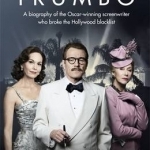
Excelerate
Business and Productivity
App
Turn your Excel workbooks into forms for your mobile device with Excelerate! This app is perfect if...

Neuroshima Hex
Games and Entertainment
App
AWARDS: "iOS Game of the Year" Game Shark "Best Card/Board Game - Runner Up" TouchGen PRESS...

Appy Geek – tech news
News and Entertainment
App
The #1 tech news app - offering the most comprehensive daily breaking news coverage from nearly...

SPG: Sneaker Price Guide & Release Dates
Sports and Lifestyle
App
A sneaker collector's tool against overly priced resellers. Featuring over 600 sneakers from 1985...

Abs Workout: 200 sit ups pro
Health & Fitness and Lifestyle
App
Want great abs? This app will take you there. It will train you from 0 to 200 sit-ups in 10 Weeks! ...
RavenclawPrincess913 (253 KP) rated Blood and Moonlight in Books
Jul 3, 2022
Author: Erin Beaty
Rating: 3/5
Summary: This book is about solving the murder of Perette Charpentier who was brutally murdered in the street. She is the daughter of one the fourteen builders who were killed in an accident when the scaffolding collapsed five years before.
Review: I love the cover the designer did a good job it's so pretty. This book went back and forth between interesting and boring. When Catrin discovered and saw the murder it was interesting and semi caught my attention at this time but than the plot got so slow and could not keep my intrest for long.
Quotes and Thoughts while reading (Spoiler Warning):
1. "I heard everything, smelled everything, felt everything with overwhelming intensity. I'd even heard Perrete's thoughts, like they were hanging in the air with the scent of her perfume - and blood." ......... "The moon had done something to me."
Thoughts: This must have been scary and nerve wrecking for her to experience this.
2. "Perrete had the architect's hammer, and that's what the killer used. When it's found, it will lead straight to Magister Thomas."
Thoughts: He is one the people I suspected as the killer.
3. "Flower of white, curled up tight
In the day you hide from sight.
Selenae know, home to go
When your face begins to show."
4. "If magick is real, maybe I'm risking my soul. After all, if magick was good, wouldn't it come from the Sun?"
Thoughts: Not always plus the moon is better anyways.
5. "The bigger shock is that Magister Thomas knows the Selenae man.".... "Have you considered that perhaps she was meant to find that girl?".... "Moon doesn't cause madness, " the Selanae man is saying. "But it does make madness believe it is safe to come out."
Thoughts: I have a feeling this Selanae man is either her father or realities something isn't adding up.
6. "What happened to your neck? Three long scratches run from Simon's left ear to his collar bone. The marks aren't deep, but thin lines have stabbed over on each where the skin was broken."
Thoughts: Makes me think it's him that killed her maybe the scratches are from her fighting back.
Nominated for an Oscar, BAFTA and Golden Globe,Trumbo is a recent film based on the original biography Dalton Trumbo written by Bruce Cook in 1977. Its adaptation to film provided the perfect opportunity to republish this extremely well researched book. With a forward written by John McNamara, the screenwriter of the motion picture, the story of Dalton Trumbo’s life is just as intriguing as it was almost forty years ago. But who is Trumbo?
If, like me, you have never heard of Trumbo or even the infamous “Hollywood Ten,” it may take a while for it to become clear as to why it was worth Cook’s time to produce a book about the man. Dalton Trumbo was a well-known screenwriter of films such as Papillon, Lonely Are The Brave and Roman Holiday as well as author of the novel Johnny Got His Gun. However these are not all he is famous for. During his life, Trumbo became a member of the Communist Party, which Hollywood branded as an Un-American Activity and thus blacklisted him, as well as other screenwriters, directors and actors. Ten of these men, Trumbo included, were imprisoned for their political beliefs – yet nothing prevented Trumbo from continuing his fairly successful career.
Interestingly, Cook begins the book with the final stages of Trumbo’s life. At time of writing Trumbo was still alive, although rather poorly. After contracting lung cancer, having a lung removed, and suffering a heart attack, Trumbo was a very sick man; nonetheless he was still enthusiastic about being interviewed and telling his personal story.
From his childhood, to his evening shifts at a bakery, Cook details Trumbo’s early life, emphasizing the hard upbringing he had before he found himself in the world of Hollywood. Although roughly 75% of the book focuses on Trumbo’s career, Cook highlights Trumbo as a family man, with both a wife and three children who he absolutely adores.
Cook constantly refers to the Hollywood Ten as a concept that the reader should already be familiar with. Granted, someone who picks up this book is more likely to do so having a prior interest in the central figure, and thus already know about his background; however those ignorant on the topic eventually gather a better understanding on the topic once reaching the relevant chapters. It also becomes clearer why Trumbo is worth reading/writing about – he may have been blacklisted, but he managed to break through all the barriers and reinstate his name and many others.
Reading this half a century after the event, it seems strange that Trumbo was imprisoned. He had not done anything intrinsically wrong, it was purely prejudice against his political beliefs that got him into the mess he found himself. But when you consider the events of the time: World War Two, the Cold War, the Korean War, and Vietnam; it is understandable why many feared those who claimed to be Communists.
Cook’s narrative does not flow as a story, and much of it is broken up with quotes from various people he interviewed. The timeline jumps about between past and present (1970s), which occasionally gets a bit confusing. A large part of the book is spent analyzing many of Trumbo’s works – both for screen and written formats – which, unless you have a particular interest, can be a little tedious.
It has got to be said that Bruce Cook was an exemplary writer with a great eye for detail. He did not jump to conclusions or only talk about things from his point of view. Instead he interviewed, what seems like, everyone who ever met Trumbo, and based his writing on fact backed up with numerous quotes and citations.
This edition of Trumbo contains a selection of photographs taken on the set of the movie. Disappointingly it does not contain any of Trumbo himself – you would think that some photos could have been tracked down!
Trumbo is not a book that will interest everyone. Most people today – particularly in England – will probably be unaware of who Dalton Trumbo was, and thus would only seek out this publication due to a fascination with film production. I have not seen the film, but after reading this and discovering how books go from novels, to screenplays to moving image, it would be interesting to find out which parts of Trumbo’s life made it onto the big screen.
<i>I received this book for free through Goodreads First Reads.</i>
Nominated for an Oscar, BAFTA and Golden Globe, <i>Trumbo</i> is a recent film based on the original biography <i>Dalton Trumbo</i> written by Bruce Cook in 1977. Its adaptation to film provided the perfect opportunity to republish this extremely well researched book. With a forward written by John McNamara, the screenwriter of the motion picture, the story of Dalton Trumbo’s life is just as intriguing as it was almost forty years ago. But who is Trumbo?
If, like me, you have never heard of Trumbo or even the infamous “Hollywood Ten,” it may take a while for it to become clear as to why it was worth Cook’s time to produce a book about the man. Dalton Trumbo was a well-known screenwriter of films such as <i>Papillon, Lonely Are The Brave</i> and <i>Roman Holiday</i> as well as author of the novel <i>Johnny Got His Gun</i>. However these are not all he is famous for. During his life, Trumbo became a member of the Communist Party, which Hollywood branded as an Un-American Activity and thus blacklisted him, as well as other screenwriters, directors and actors. Ten of these men, Trumbo included, were imprisoned for their political beliefs – yet nothing prevented Trumbo from continuing his fairly successful career.
Interestingly, Cook begins the book with the final stages of Trumbo’s life. At time of writing Trumbo was still alive, although rather poorly. After contracting lung cancer, having a lung removed, and suffering a heart attack, Trumbo was a very sick man; nonetheless he was still enthusiastic about being interviewed and telling his personal story.
From his childhood, to his evening shifts at a bakery, Cook details Trumbo’s early life, emphasizing the hard upbringing he had before he found himself in the world of Hollywood. Although roughly 75% of the book focuses on Trumbo’s career, Cook highlights Trumbo as a family man, with both a wife and three children who he absolutely adores.
Cook constantly refers to the Hollywood Ten as a concept that the reader should already be familiar with. Granted, someone who picks up this book is more likely to do so having a prior interest in the central figure, and thus already know about his background; however those ignorant on the topic eventually gather a better understanding on the topic once reaching the relevant chapters. It also becomes clearer why Trumbo is worth reading/writing about – he may have been blacklisted, but he managed to break through all the barriers and reinstate his name and many others.
Reading this half a century after the event, it seems strange that Trumbo was imprisoned. He had not done anything intrinsically wrong, it was purely prejudice against his political beliefs that got him into the mess he found himself. But when you consider the events of the time: World War Two, the Cold War, the Korean War, and Vietnam; it is understandable why many feared those who claimed to be Communists.
Cook’s narrative does not flow as a story, and much of it is broken up with quotes from various people he interviewed. The timeline jumps about between past and present (1970s), which occasionally gets a bit confusing. A large part of the book is spent analyzing many of Trumbo’s works – both for screen and written formats – which, unless you have a particular interest, can be a little tedious.
It has got to be said that Bruce Cook was an exemplary writer with a great eye for detail. He did not jump to conclusions or only talk about things from his point of view. Instead he interviewed, what seems like, everyone who ever met Trumbo, and based his writing on fact backed up with numerous quotes and citations.
This edition of <i>Trumbo</i> contains a selection of photographs taken on the set of the movie. Disappointingly it does not contain any of Trumbo himself – you would think that some photos could have been tracked down!
<i>Trumbo</i> is not a book that will interest everyone. Most people today – particularly in England – will probably be unaware of who Dalton Trumbo was, and thus would only seek out this publication due to a fascination with film production. I have not seen the film, but after reading this and discovering how books go from novels, to screenplays to moving image, it would be interesting to find out which parts of Trumbo’s life made it onto the big screen.
Rachel King (13 KP) rated The Proper Care and Feeding of Marriage in Books
Feb 11, 2019
While some people will likely take offense at some of Dr. Laura's very strong opinions about the man and woman's role in marriage - man goes to work, woman stays home and takes care of home and children - I happen to agree with her as I am a stay-at-home mom myself. But even she admits to necessary exceptions to that rule in some circumstances - such as an injury preventing the man from working, and the woman choosing to take a job to pay for "luxuries." She had much to say about the negative effects that extremist feminism has had on marriage and child-rearing - and how to reverse those effects in the reader's own marriage, backed up with example after example from other married couples. While many counselors and therapists will simply listen to you verbally bash and complain about your spouse for session after session, she constantly brings the focus back to the complainer and encourages that person to do the changing he or she wants to see in the spouse. Her belief is that in most marriages, if one spouse gives what the other person wants, then that person will reciprocate. Dr. Laura's goals were very simply love and happiness in marriage, which everyone wants when they get married but often forget how to "do." Following her own KISS principle - "Keep it simple / small, stupid!" - she breaks down how to reach those goals very quickly and efficiently.


